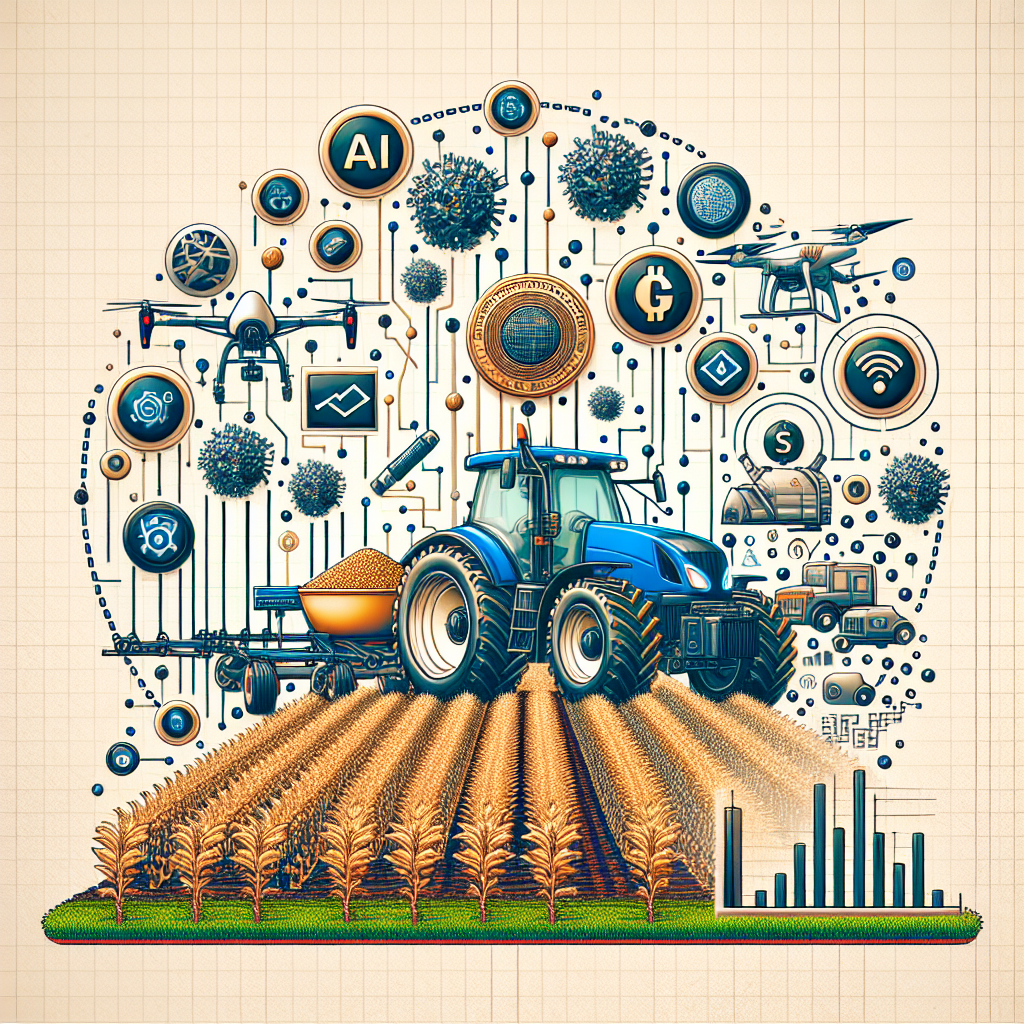Agriculture is one of the oldest and most essential industries in the world. It provides the food we eat, the clothes we wear, and the materials we use in our everyday lives. However, like many industries, agriculture is constantly evolving and facing new challenges. One of the key challenges facing the agricultural sector is the need for increased efficiency and productivity, while also maintaining sustainability and profitability.
This is where artificial intelligence (AI) comes in. AI has the potential to revolutionize the way we approach agriculture, particularly in the realm of finance and investment. By leveraging AI technologies, farmers, investors, and financial institutions can make more informed decisions, optimize their operations, and ultimately drive greater returns on their investments.
There are several benefits of using AI in agricultural finance and investment, including:
1. Data-driven decision-making: AI can analyze vast amounts of data in real-time to provide valuable insights and predictive analytics. This enables farmers and investors to make more informed decisions about crop yields, market trends, and financial strategies. By leveraging AI, stakeholders can optimize their operations and investments to maximize profitability.
2. Risk management: Agriculture is a volatile industry, with factors such as weather, pests, and market fluctuations impacting crop yields and prices. AI can help farmers and investors better understand and mitigate these risks by providing advanced risk assessment models and scenario analysis. This allows stakeholders to proactively manage risks and protect their investments.
3. Precision agriculture: AI technologies such as drones, sensors, and machine learning algorithms can help farmers optimize their use of resources such as water, fertilizer, and pesticides. By analyzing data on soil quality, weather patterns, and crop health, AI can help farmers make more precise and efficient decisions about when and where to plant, fertilize, and harvest crops. This can lead to higher yields, lower costs, and reduced environmental impact.
4. Access to finance: AI can also help improve access to finance for farmers, particularly in developing countries where traditional banking services may be limited. By leveraging AI-powered credit scoring models and blockchain technology, financial institutions can better assess the creditworthiness of farmers and provide them with access to affordable loans and financial services. This can help farmers invest in new technologies, improve their operations, and increase their productivity.
5. Sustainable agriculture: AI can also play a key role in promoting sustainability in agriculture. By analyzing data on soil health, water usage, and biodiversity, AI can help farmers adopt more sustainable practices that protect the environment and ensure the long-term viability of their operations. This can also attract socially responsible investors who are looking to support sustainable agriculture initiatives.
Overall, the benefits of AI in agricultural finance and investment are vast, with the potential to transform the industry and drive greater efficiency, profitability, and sustainability.
FAQs:
Q: How can AI help farmers optimize their use of resources?
A: AI technologies such as drones, sensors, and machine learning algorithms can analyze data on soil quality, weather patterns, and crop health to help farmers make more precise and efficient decisions about when and where to plant, fertilize, and harvest crops. This can lead to higher yields, lower costs, and reduced environmental impact.
Q: How can AI improve access to finance for farmers?
A: AI-powered credit scoring models and blockchain technology can help financial institutions better assess the creditworthiness of farmers and provide them with access to affordable loans and financial services. This can help farmers invest in new technologies, improve their operations, and increase their productivity.
Q: How can AI promote sustainability in agriculture?
A: AI can analyze data on soil health, water usage, and biodiversity to help farmers adopt more sustainable practices that protect the environment and ensure the long-term viability of their operations. This can attract socially responsible investors who are looking to support sustainable agriculture initiatives.
In conclusion, the benefits of AI in agricultural finance and investment are clear. By leveraging AI technologies, farmers, investors, and financial institutions can make more informed decisions, optimize their operations, and drive greater returns on their investments. With the potential to revolutionize the industry, AI is poised to play a key role in shaping the future of agriculture.

